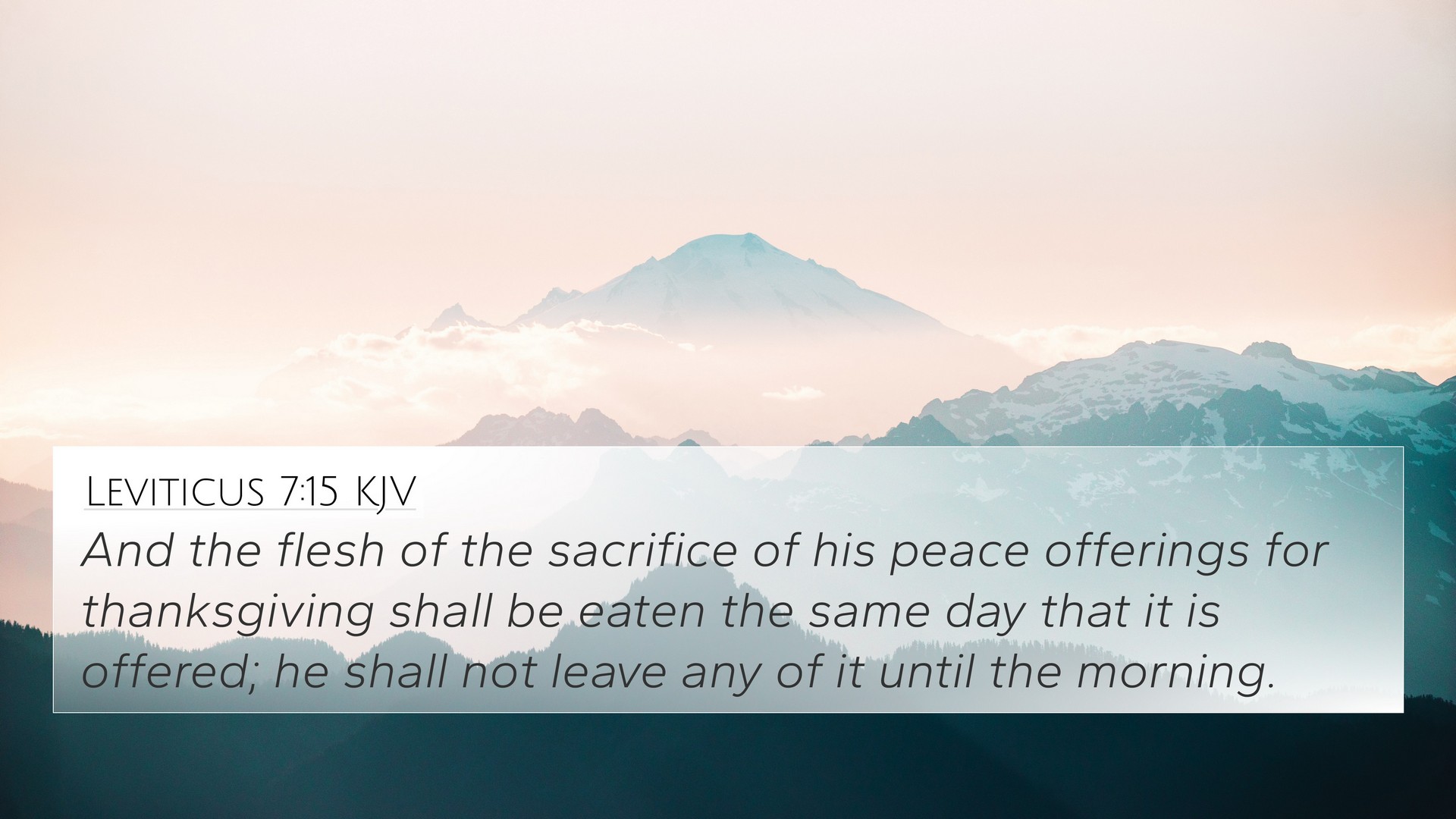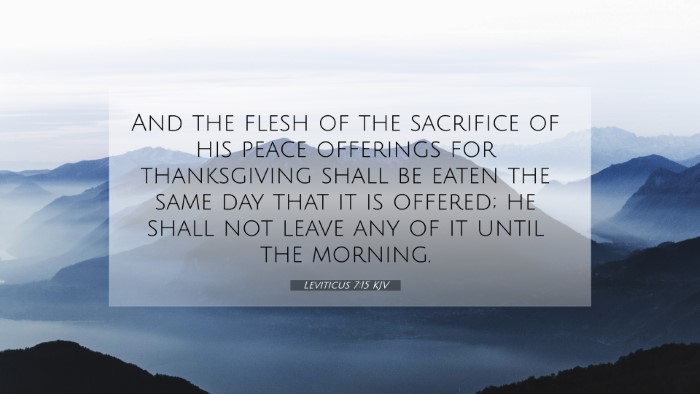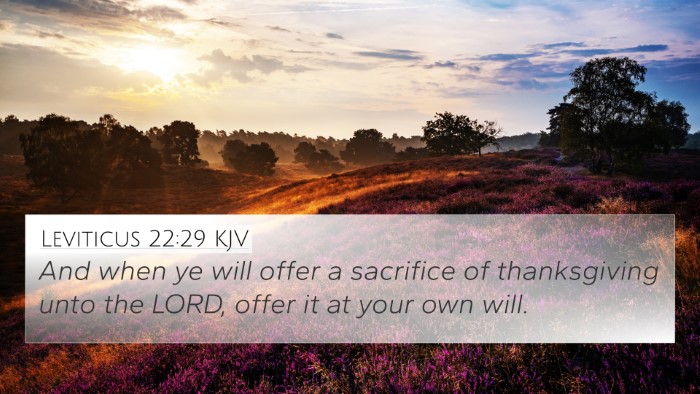Understanding Leviticus 7:15
Leviticus 7:15 states, "And the flesh of the sacrifice of his peace offerings for thanksgiving shall be eaten the same day that it is offered; he shall not leave any of it until morning." This passage centers around the regulations concerning peace offerings, particularly those offered in gratitude to God.
Contextual Overview
The Book of Leviticus serves as a manual of holiness, detailing the laws and rituals for Israelite worship. Leviticus 7 is specifically focused on the rules surrounding different types of offerings, including peace offerings. These offerings have an important role in expressing gratitude, fellowship, and communion with God.
Commentary Insights
- Matthew Henry's Commentary:
Henry emphasizes the importance of thankfulness in worship. He notes that the peace offerings were a means for believers to express gratitude directly to God. The stipulation to consume the offering on the same day highlights the immediacy of gratitude and the communal aspect of the meal, which symbolizes fellowship with God.
- Albert Barnes' Notes:
Barnes explains that the command regarding consumption of the peace offerings reinforces the notion of properly honoring God through worship. The directive to avoid leftovers until morning underscores the sacredness of the offering and the promptness in recognizing God’s blessings.
- Adam Clarke's Commentary:
Clarke discusses the significance of sharing the meal among worshippers. He argues that this represents an integral part of community life, with the shared meal signifying unity among God’s people. Clarke notes this practice reveals a connectedness between divine provision and the corporate identity of Israel.
Theological Implications
This verse holds deeper theological meanings, representing themes of:
- The necessity of gratitude in worship.
- The importance of community in religious practices.
- The sanctity of offerings made to God.
Cross-References
Leviticus 7:15 is inter-related with various other scriptures that provide a fuller understanding of its implications. Below are significant Bible verse cross-references:
- Leviticus 3:1-5: Discusses the nature of peace offerings and their purpose, setting the groundwork for understanding the regulations in chapter 7.
- Deuteronomy 12:6: Explores offerings and how they are to be presented, emphasizing God's requirements for gratitude and worship.
- Psalm 107:22: Extols giving sacrifices of thanksgiving, aligning with the intention behind peace offerings.
- 1 Corinthians 10:21: Contrasts the sharing of communal offerings within the body of Christ reflecting the same principles of fellowship.
- Hebrews 13:15: States that our sacrifice should be of praise to God, which connects to the theme of thankfulness expressed in Leviticus.
- Matthew 5:23-24: Discusses the importance of reconciliation and presents worship in the right relational context, akin to the fellowship aspect of peace offerings.
- Romans 12:1: Encourages believers to present their bodies as living sacrifices to God, which reflects the principles of commitment and thanksgiving.
Thematic Connections
In exploring this verse, we find many connections between Bible verses that enrich our understanding:
- Thanksgiving in Worship: The practice of expressing gratitude is echoed throughout the Bible, showing a divine expectation for thankfulness in various forms of worship.
- Community in Christ: The communal aspect of sharing offerings contributes to a broader theological understanding of unity and fellowship among believers.
- God's Provision: The peace offering reinforces the theme of God's continuous provision for His people, urging ongoing acknowledgment of His blessings.
Practical Applications
As modern readers, we can draw valuable lessons from Leviticus 7:15:
- Engage in regular expressions of gratitude in prayer and worship.
- Participate in communal worship and fellowship, reflecting the unity found in Christ.
- Recognize and appreciate God’s ongoing provisions and blessings in our lives.
Conclusion
Leviticus 7:15 is a poignant reminder of the importance of thanksgiving and communal worship in our relationship with God. By cross-referencing with numerous other biblical texts, we draw meaningful insights into both the historical context and the enduring principles applicable to our lives today.
For further exploration, consider utilizing tools for Bible cross-referencing such as concordances or cross-reference guides to deepen your understanding of related scriptures.



